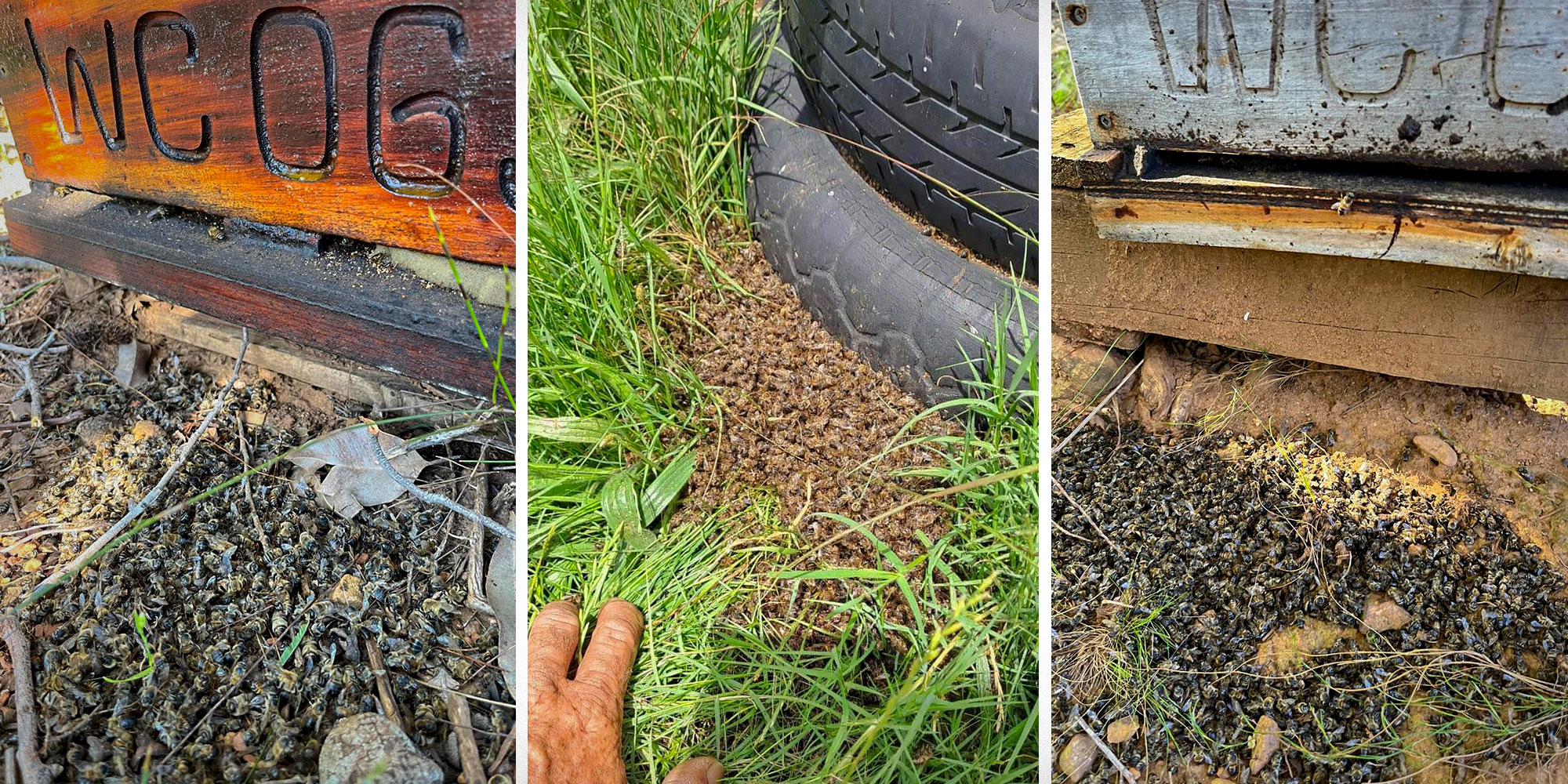The Western Cape Bee Industry Association (WCBA) is raising the alarm over a concerning increase in honey bee poisonings across the province. Riversdale beekeeper Jannie Nothnagel lost about 70 honeybee colonies in two separate incidents in recent months. An investigation and laboratory analysis revealed that his bees were poisoned by fipronil, a broad-spectrum insecticide and termiticide. It is toxic by contact and ingestion.
The association said on Tuesday, 18 February that the insecticide has a high toxicity for bees and strict restrictions on its use. They condemned the “careless and often uninformed use of agricultural chemicals” which “pose a severe threat to food production, the environment as a whole, and the livelihoods of beekeepers”.
“What makes the situation even more alarming is the collateral damage to wild honey bee populations in the area. These naturally occurring colonies, which occupy trees and other nesting sites, have also been wiped out.”
Nothnagel said that “what is happening to the honey bees in Riversdale is heartbreaking”, as he expressed frustration over the unclear source and purpose of the fipronil application.
Read more: SAHRC calls for banning of highly toxic pesticides from agriculture
The Worcester beekeeper who lost about 600 of his colonies on the blueberry farm, and asked that his name be temporarily withheld, attributed this to the reckless use of agricultural chemicals.
“Laboratory tests on dead bees from the site detected fungicides, which, although generally non-lethal to bees, can become toxic if applied incorrectly.”
The beekeeper said he was “in a big financial crisis”.
The association stressed the economic repercussions of these incidents for beekeepers:
“The loss of healthy bee populations not only threatens biodiversity but also jeopardises the agricultural economy, which depends heavily on pollination services to maintain high yields and quality produce. Honey bees pollinate more than 50 different food crops in South Africa, including fruits, nuts and vegetables.”
WCBA chairperson Chris Nicklin said “there has been what could amount to bee carnage in some areas”.
“The welfare of our indigenous honey bees is not merely a beekeeping issue – it should concern everyone. Without healthy and thriving honey bee populations the agricultural output of the Western Cape will face severe challenges, potentially leading to reduced crop yields and economic losses for the province.”
Dr Gerhard Verdoorn, a top expert on pesticide exposure and the stewardship and operations manager of CropLife South Africa, echoed those concerns: “The rate of bee poisoning incidents has increased alarmingly over the past two years. Bee-specific warnings on pesticide labels are often ignored, resulting in mass bee mortality when pesticides are applied during periods of active pollination in crop fields or orchards. In many cases, pesticides are sprayed off-label; in other words, contrary to label instructions. For example, imidacloprid is unlawfully applied via aerial spraying on cash crops. Insecticides are also frequently used during full bloom while bees are actively foraging, despite the strict warnings on labels to avoid this.”
Under the guidance of its scientific adviser, Professor Robin Crewe, one of South Africa’s leading entomologists, the WCBA is creating a database to document bee poisonings across the Western Cape. This centralised record will help to identify trends and hotspots as well as potential solutions to the crisis.
The association is also developing a standard operating procedure to help beekeepers manage mass poisonings effectively.
Read more: Honeybees are disappearing overnight: Theft and vandalism of bee boxes and honey are rife throughout SA
“While these initiatives are a step in the right direction, addressing the root cause of the problem will require a collaborative effort among all stakeholders, including beekeepers, farmers, government agencies and pesticide manufacturers. Awareness campaigns, stricter enforcement of pesticide regulations and the promotion of bee-friendly farming practices will be essential in safeguarding honey bees and the critical role they play in agriculture,” it added.
However, it seems pesticides are not the only adversity bees are facing.
A study published in the journal Nature in January found that pollinators such as bees are affected by agricultural processes (bees were affected the most). Using high levels of common fertilisers on grassland halves pollinator numbers, it said.
The researchers focused on wildflowers and the importance of biodiversity, revealing that chemical-free plots had more than nine times more bees compared with those with the highest levels of fertiliser.
Read more: The critical role honeybees play in SA’s agricultural economy and biodiversity
“Pollinators are vital to agricultural productivity and maintaining natural ecosystems. However, declines in the abundance and distribution of many pollinator species have prompted concerns for their pollination services. While several causes have been identified, agricultural intensification is considered a key factor. Despite this, the effects of artificial soil enrichment on pollinators remain poorly understood,” they wrote.
The association said it would work with all parties to address this urgent issue and ensure the long-term health and sustainability of honey bee populations in the Western Cape.
“This is a crisis that requires immediate attention and decisive action… Our future depends on the survival of our bees, and we all have a role to play in protecting them,” Nicklin added. DM
South Africa
Spike in honey bee poisonings threatens biodiversity and food security in Western Cape
A Worcester beekeeper, who provides large-scale pollination services to agricultural farms, reported a loss of more than 600 of his colonies on a single blueberry farm.





